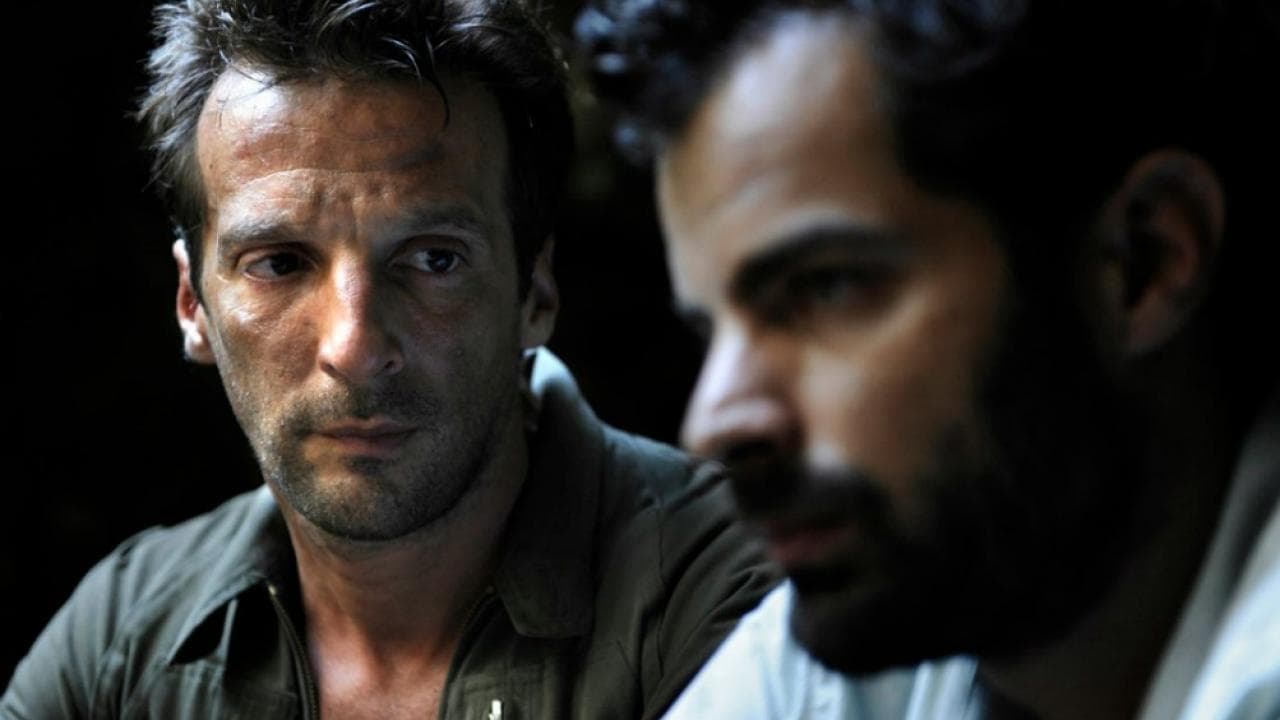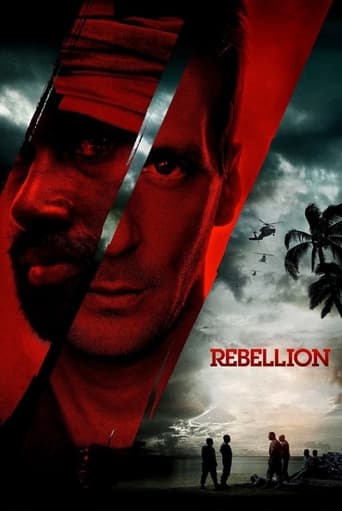

ridiculous rating
... View MoreMost undeservingly overhyped movie of all time??
... View MoreA waste of 90 minutes of my life
... View MoreIt is neither dumb nor smart enough to be fun, and spends way too much time with its boring human characters.
... View MoreIt's April 22, 1988. Three or four gendarmes are dead and 30 kidnapped by Kanak separatists on the eve of the presidential election in France. They are sending in a platoon of 50 paras to New Caledonia. The PM sends in the Army to take control. There is a political competition between Mitterrand and Chirac, and everything is caught up in it. GIGN Captain Philippe Legorjus (Mathieu Kassovitz) and his men end up following the Army's orders. But soon they have to struggle against the army's barbaric tactics.It's a good historical drama. It's a bit simplistic with the Army being all bad. I'm not familiar with any of this story to have an opinion about its validity. All I can say is that it works as a dramatic movie.
... View More'Rebellion' is an account of events in the French South Pacific territory of New Caledonia. In 1988 a group of indigenous New Caledonians storm a police station in the territory, killing some police officers and taking still more hostage. Events quickly become caught up with the Mitterand v Chirac presidential election and the Parisian police sent to New Caledonia to deal with the situation find the army have taken over the operation - and the military's methods of tying village chiefs to trees and beating up women are turning the local population even more against the French.The military are portrayed as gun-totin' buffoons without a shred of humanity and the politicians as self-serving vote-seeking machines. On the other hand, the police are self-sacrificing good guys and the terrorists family-loving, intelligent, reasonable chaps just one step below sainthood. This is not an unbiased film! It is also difficult for those not versed in French politics of the late 1980s to follow everything, not least because the English-language sub-titles use acronyms instead of the full, descriptive names of various organisations. The close, hand-held camera-work used during the forest battle scenes gives a good feel of how it must be in those confusing, noisy situations - but also makes it difficult for the viewer to follow events. Overall I enjoyed the novelty of a film set in the modern(ish) South Pacific, but this is far from unflawed.
... View MoreRebellion is a good hostage movie. It presents a refreshing balanced view of what taking hostage means, which is not without reminding Dog Day Afternoon. Like it, it depicts real life hostage takers, not as dehumanized machiavellian bad guys, but as relatively ordinary people making bad decisions and the unravelling of violence it unleashes. But where Dog Day Afternoon, as an American movie, focuses on individual responsibility, Rebellion focuses on the reaction of society and its flaws, and this is where I have problems with the movie. I am not very familiar with that particular historical event, but the director, in its eagerness to show that violence could have been avoided, seems to give a bit quickly absolution to the hostage takers. They killed 4 innocent and unarmed policemen? Well, they regret, so it's OK to not surrender and even take more hostages. They make realistic demands, such as: "state officially that we are not terrorists or we kill the hostages" (!!), and intend to exploit their crime mediatically. What can be wrong with that?
... View MoreThis film has a late and very limited release in London, UK. It's a strong film that shows the terrible price people pay for political expediency. In 1988 as the French general elections were looming, a group of activists in New Calendonia affiliated to the FLNK, a rebel group campaigning for the territory's independence from France, storm one of the island's Gendarmeries, killing four of the policemen and taking another 30 hostage. The GIGN, the Gendarmaries' special forces unit, are enlisted to negotiate and secure the hostages release. Unbeknownst to them the prime minister of the time, Jacques Chirac, has sent in 300 soldiers whose aim is to crush the rebellion by FLNK activists. Chirac's actions are suggested to be for his and his party's political ends in the forthcoming election regardless of the longer term consequences. There is a very nice moment where Kassovitz splices archive footage of a televised debate between Chirac and Mitterand (the incumbent president whose post Chirac was gunning for) where they discuss the hostage situation in New Caledonia. Both are talking heads only and Chirac's words are those of an arch liar.Importantly the FLNK are labelled a 'terrorist' group by the French government who, consequently, will not be seen to negotiate or enter into discussions with them. The label terrorist is used too readily by governments and has been cynically exploited since the 9/11 events by many countries to crush dissidence. We witness through this fictional account, told from the point of view of the GIGN's lead officer and main negotiator Phillipe (Kassovitz), how destructive a government's might and the blind allegiance of its military is to people it allegedly represents, like the New Caledonians, who the film emphasises are French citizens. In no uncertain terms the film shows that the Kanaks, the indigenous people in New Caledonia, are decent people with a fine sense of morality and honour. When we meet the rebels their leader, Alphonse Dianou, is eloquent and focused and, unlike some iconic freedom fighters, very sorry for the deaths to the Gendarmeries that were not part of the plan but the result of panic. He and his men seek a peaceful solution and place their trust in Phillipe to obtain that.The lead protagonist Phillipe is a much more complex and dubious character than Dianou or any of the rebels. The film shows the political machinations that thwart his efforts for a peaceful solution based on dialogue and negotiation. Once his own efforts are crushed he pledges himself to his men and to being a 'soldier' and ends up betraying the trust the activists and in particular, Dianou, had placed in him. If the film is meant to engage the viewer to sympathise with Phillipe then it fails in some respects because I despised him for his actions.This is a solid film with an interesting and layered story, great acting, especially from those who play the rebels, and moving. New Calendonia is not a place with which I was familiar but it's on my mental map now. They are due to vote next year, 26 years since the events of the film, on independence. Good luck to them. I hope they gain their independence if that is what the vote returns. The French interest in the territory has been for the nickel and nothing more. Dianou has a powerful speech about the conversion of the world into money and the legacy that bequeaths. What little we see of the Kanak culture shows quite clearly that people can live happily without a system based upon money rather than goods or services.
... View More